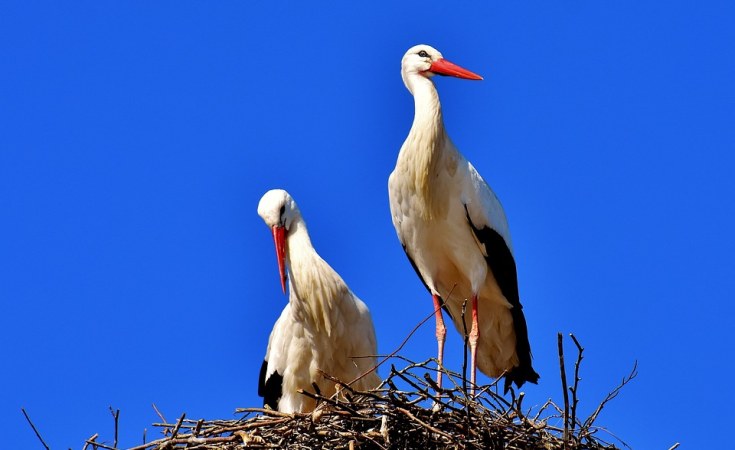A new revelation from Queen’s University Belfast unveils a harrowing truth: close to half of the more than 70,000 species examined are teetering on the brink of extinction. This is an alarming wake-up call.
As we know our continent is blessed with a natural environment like no other: it is home to nearly one-fifth of the world’s forests, the largest wildlife migration on Earth, and the most diverse megafauna of any continent. But it is in immediate danger.
Despite the fact that the area of land under protection has doubled in the last 50 years,research suggests that Africa’s Protected Conservation Areas (PCAs) are now failing to protect species in over 80% of areas. In the last two decades alone, Africa’s lion and elephant populations have shrunk by half, exacerbating a longstanding trend: between 1970 and 2016, Africa’s natural capital stock fell by 65%, driven largely by land-use change. Now, almost three million hectares of rainforest are being lost every year.
While these are terrible losses in themselves, the situation has further serious consequences for Africa and the African economy.
Africa’s Natural Economy
Interestingly, while much of the damage is being wrought by economic activity, a more sophisticated analysis reveals that the overall health of the continent’s economy actually depends on conservation. In fact, almost 60% of Africans depend upon this precious natural inheritance for their livelihoods.
Part of that attaches to wildlife tourism, which is a central part of Africa’s thriving tourist sector – accounting for 80% of visits to sub-Saharan Africa and estimated to generate $29 billion annually.
But there is much more in the African economy that depends on the natural world. The fisheries and aquaculture sectors directly contribute $24 billion to the African economy, while two-thirds of Africans use non-timber forest products (NTFPs) for food, medicine, energy and income. Economically important NTFPs include honey (which contributes hundreds of millions of dollars to African economies) and shea (which employs 16 million women across Africa and accounts for up to 25% of household income in the Sahel region).
Leveraging Africa’s wildlife economy to drive growth
It is clear that maintaining the status quo and solely relying on the safeguarding of designated conservation areas is no longer a credible long-term strategy. We need to advance beyond this conventional thinking and actively foster the expansion of Africa’s wildlife economy. By doing so, we can create novel employment opportunities and empower local communities to preserve the natural wealth in their vicinity. This proactive approach ensures not only the protection of wildlife, but also engenders a symbiotic relationship between people and nature, where both thrive.
This strategy has already achieved results: for example, in Namibia, the Community-Based Natural Resource Management (CBNRM) approach is helping local communities earn income through wildlife tourism, thereby ensuring that they're invested in protecting and maintaining local ecosystems. At the same time, in Kenya, wildlife conservancies are also playing a key role in securing livelihoods and reversing wildlife decline: in the Maasai Mara national game reserve in Narok, 450,000+ acres of habitat are protected through 15 conservancies, helping to safeguard the great Serengeti-Mara wildebeest migration. 3,000 households are now earning a total of more than $4 million annually from the associated tourism – and over the last decade, the lion population has doubled.
In addition, we should also recognise that the proper stewardship of Africa’s natural inheritance can itself be a catalyst for wider economic growth. According to the development agency FSD Africa, every dollar invested in agricultural land remediation in Uganda returns $230 in economic value, while every dollar invested in Senegal’s and Tanzania’s marine protected areas generates more than $5000.
Why it’s important to teach conservation at universities
To maximise such benefits, however, we need to generate more interest in the wider wildlife economy at a policymaking level. For example, research suggests that NTFPs are generally not prioritised in policymaking, and as a result their economic contribution is not widely assessed. Making leaders aware of the risks and opportunities is important – but we also need to train a new generation who will take the continent forward to a sustainable future. Amongst other measures, we must, where relevant, introduce conservation learning into university degree courses, encourage joined-up thinking, and explore how new technologies can help create a healthier and better-managed conservation sector.
Boosting investment and efficiency in conservation will also mean improving the reporting in the sector to help triage resources and compare schemes in different countries. Governments and other large organisations need more and better data on conservation and its contributions in order to encourage investment in biodiversity as an asset.
To help Africa achieve its potential, we also need to discuss best practice and pursue partnerships on a more continental, even global scale.
That’s why, we need to build partnership, bringing together conservationists, investors, entrepreneurs and technologists to help unlock the potential of Africa's wildlife economy. A ss step towards this, five hundred stakeholders from Africa and around the world will convene in Kigali this month to explore new ways to catalyse economic development through the sustainable utilisation of wildlife resources.
As we look to the future, we desperately need to prioritise conservation issues that threaten life for current and future generations, and explore new opportunities that will support ecological development across the continent. For the benefit of Africa's people, its wildlife, and the wider economy, we need to act now – before it is too late to change course.
Indeed, given Africa's vibrant youth population, teeming with potential and ready to make significant contributions, the sustainability and economic health of the continent should be priorities for the world at large.
Richard Vigne is Executive Director of the African Leadership University’s School of Wildlife Conservation.


